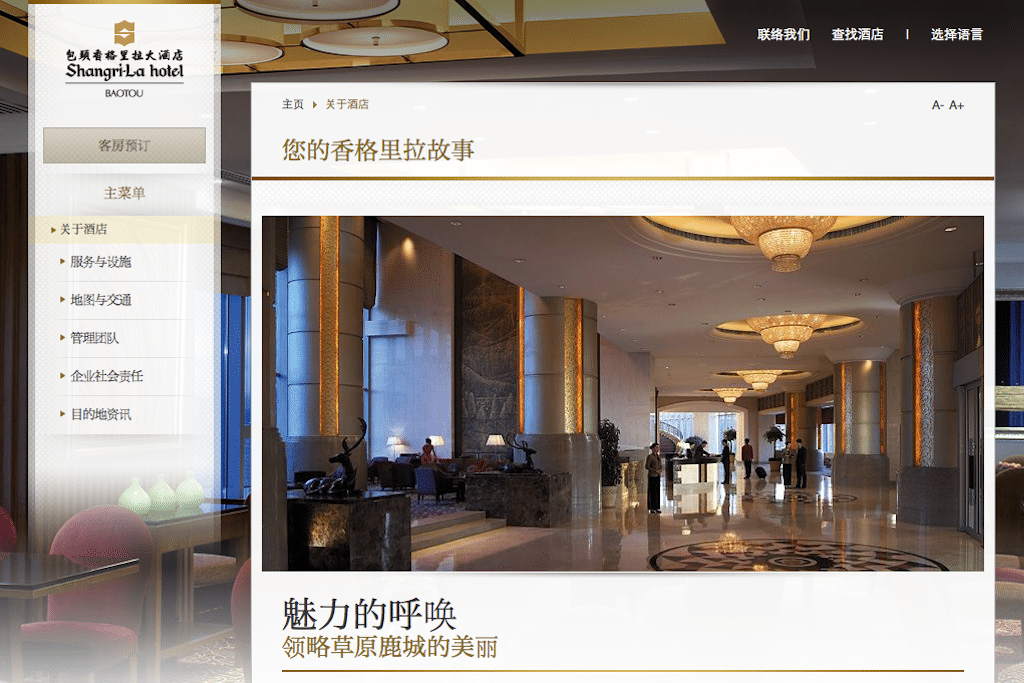Hotel brands miss huge opportunities to engage Chinese travelers online

Skift Take
Social media has become a major resource for bookings and marketing in the West, but hotels aren’t using the same tools in the market they’re most desperate to reach. Expect a major boost for the hotels that are the quickest to adapt.
Shangri-La Hotel Group is doing a fantastic job of engaging Chinese customers online and providing them the means to learn about and book Shangri-La properties throughout the country.
The brand has the largest following on its Sina Weibo and Youku accounts of any hotel brand, a highly rated Chinese iPhone app that hosts competitions, and the only iPad app in the Chinese iTunes store in Chinese.
These are the findings of L2's Digital IQ Index: China, which ranked Shangri-La Hotel the highest out of
